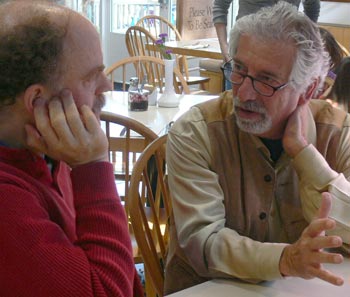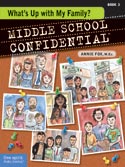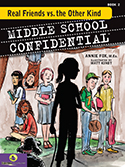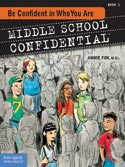January 2007
Love’s All You Need – So Why Not Ask For It?
by Annie Fox, M.Ed

A dear friend of ours was looking for love and comfort on Thanksgiving. She didn’t know we were going to be away when she sent me an email: “I know this is incredibly presumptuous, and Miss Manners would be scandalized, but I’m wrangling for an invitation.”
Why was our friend feeling so awkward? Did she really believe that she was crossing some line that should not be crossed even though we’ve known each other very well for years? Our lovely friend must have felt that she didn’t have the right to say, “I need a place to be on Thanksgiving. Can you help me?”
That blew me away. Then after a moment’s reflection I realized that our friend’s not alone in her reluctance
to express what she needs. Most of us are much quicker to stand up for others than to speak up for ourselves. Especially
women. We’d rather “do without” than risk “imposing” on a friend.  But wait a minute!
Is it even possible to impose on a true friend? I don’t think so. Not if the need is real and the
friendship is built on mutual respect, trust, and support. Yet despite wonderful friends who’d love the opportunity
to demonstrate their friendship, time and again we choose to “tough it out” alone, even in our darkest
moments. Why? On some level we must believe that we don’t deserve to get our emotional needs met. But where
did that one come from?
But wait a minute!
Is it even possible to impose on a true friend? I don’t think so. Not if the need is real and the
friendship is built on mutual respect, trust, and support. Yet despite wonderful friends who’d love the opportunity
to demonstrate their friendship, time and again we choose to “tough it out” alone, even in our darkest
moments. Why? On some level we must believe that we don’t deserve to get our emotional needs met. But where
did that one come from?
Babies and young children are experts at getting their needs met and they do it by expressing themselves… loudly and without reservation.
I recall reading someone’s theory that human infants are so irresistibly cute to ensure that adults will instantly fall in love them and want to care for them. Once they’ve gotten their sweet baby hooks into our hearts, they’re great at expressing their need for food and comfort. There’s no distinction between physical and emotional needs. But as they grow up, our conversations with our children are mostly about their physical needs. Sweetheart, are you hungry? Do you want something to drink? Is it naptime? Would you like another cookie?
Because physical, tangible needs are what we emphasize, asking for that stuff is very easy for kids. Dad, I need a ride. Mom, I need you to sign this. I don’t like this jacket. I want a new computer. I need money.
don’t deserve to get our emotional needs met.
Most of us haven’t focused much on helping them express their emotional needs. It takes a high degree of self-awareness and self-confidence to say: I need a hug. I need to share this fantastic news with someone. I need a shoulder to cry on. I need a kick in the pants. I need you to tell me the truth. I need a friend. Can you help me?
Americans pride themselves in being independent.
Our nation’s history is intermingled with the history of hard-working immigrants, optimistic and self-confident in
their belief that they could make it on their own in a new country. Do you think those wagon train guys ever stopped and
asked for directions? Nope. We're Americans. When we’ve got a problem, we don’t like admitting that we need help.
And that can be a problem.
I surveyed 6th-8th graders at several different schools and had them rate themselves on this statement: “It’s easy for me to ask for help.” 25% of them said, “It’s never or almost never easy for me to ask for help.” Nearly another 25% of them reported that “sometimes” they had trouble asking for help.
Because they’re kids they don’t know how to do many things. It’s probably safe to say there are often times when they feel like they need help. But as my survey indicates, they’re likely to be unwilling or unable to let others know how they feel. This matches the feedback I got when I asked the same groups of 6th-8th graders to rate themselves on this statement: “I pretend things are OK when they aren’t.” 83% admitted that “sometimes, always or almost always” they pretend things are OK when they really aren’t.
An unwillingness to ask for help coupled with pretending that things are fine when they’re not translates into friendship problems. When they write to me about their problems with friends, I tell kids that other people aren’t mind readers. If they’ve got something going on with a friend, a sibling, or a parent, then they need to speak up.
 The same is true for all of us and our adult friends. Hopefully you’ve got real friends that you can trust
and rely on. They want to give you support in the same way that you want to be called on to support them when they
need it. When we withhold our human need to connect heart-to-heart, we end up short-changing ourselves and the people
we’re closest to.
The same is true for all of us and our adult friends. Hopefully you’ve got real friends that you can trust
and rely on. They want to give you support in the same way that you want to be called on to support them when they
need it. When we withhold our human need to connect heart-to-heart, we end up short-changing ourselves and the people
we’re closest to.
A parent’s role is to raise an emotionally healthy human being. That includes knowing what you’re feeling and asking for support when you need it. Of course self-reliance is essential and being able to calm yourself at times of stress is an incredibly valuable tool. But self-sufficiency ought to be coupled with an awareness of the role others play in our lives. Everyone needs a reliable support network of friends and family members. Allowing our support network to actually support us is a hallmark of mental health. When we let people love us, we honor the most human part of ourselves.
As for my friend, she was brave enough to express her needs to another friend who lives close by. Consequently she had a loving place to spend Thanksgiving. And I’m sure her friends were grateful to be able to support her in that way.
This holiday season, hold nothing back. Allow yourself to love and be loved fully and without reservation.
Have a joyful holiday.
In peace and friendship,
Annie
















